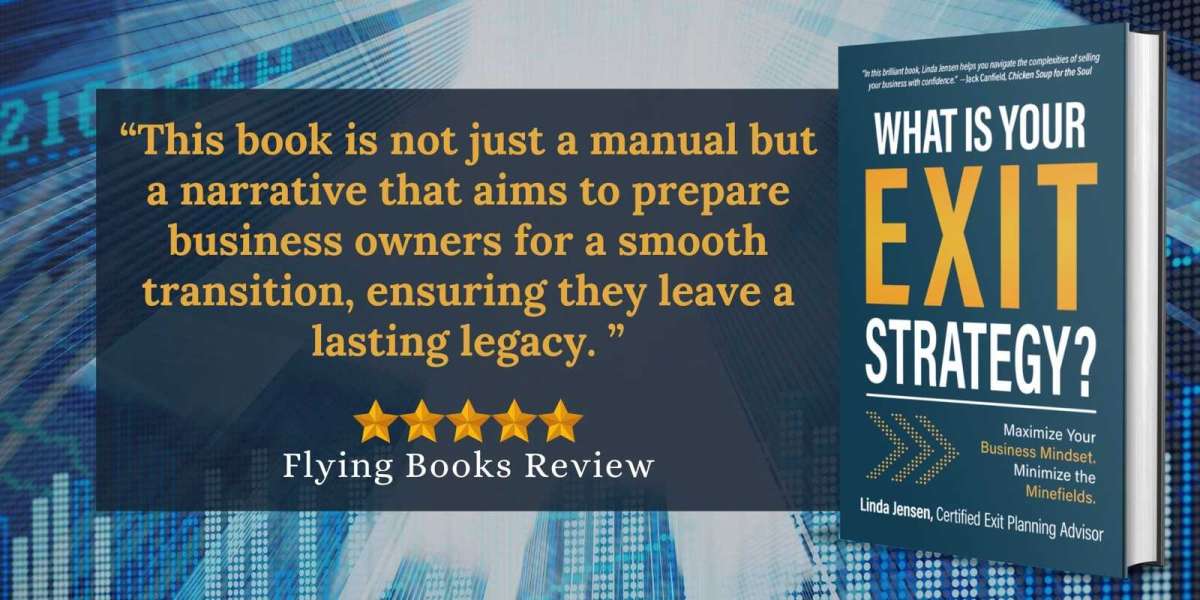Are You Working On Your Business or Just In It?
As a business owner, you may find yourself overwhelmed by daily tasks like managing payroll, leading employees, and staying ahead of competitors. But have you ever asked yourself if you’re spending enough time working on your business, instead of just in it? It’s a crucial question, and one that may determine the future success of your business, especially if you’re considering selling.
In my book, What is Your Exit Strategy?, I explore how business owners often become so caught up in the daily grind that they overlook preparing their business for an eventual exit. Working in your business—doing the day-to-day tasks—is important, but working on it, ensuring the business is self-sustaining and attractive to buyers, is vital for long-term success.
The Harsh Reality: Your Business May Not Be Sellable
For many, the idea of stepping away from the business they’ve poured their heart into is unthinkable. But if you’re planning to sell, you need to shift your perspective. Buyers aren’t looking for businesses that depend on the owner. A business that cannot function without you will be far less valuable to potential buyers.
Without systems, procedures, and leadership in place, your business may be worth nothing when you try to sell it—even if it generates significant revenue. It’s not about your personal attachment to the business; it’s about the business’s ability to run independently and the value it offers to a buyer.
How Much Is Your Business Really Worth?
It’s easy to believe that your business is invaluable, but the market doesn’t work based on sentiment—it’s about measurable value. When preparing to sell, ask yourself these key questions:
• Can your business operate without your constant involvement?
• Have you determined your business’s true market value?
• Is your revenue stable or growing consistently?
• Do you have a diversified base of customers and suppliers?
• Are your financial records clean and transparent?
Most buyers will meticulously examine these factors, and an inflated valuation can lead to disappointment when your business doesn’t meet expectations. A business owner who assumes their business is worth $10 million may be shocked to find out it’s only worth $6 million after a proper evaluation.
Real-World Examples of Businesses That Were Unprepared
Consider the case of an auto parts manufacturer. The owner, brilliant at his craft, had no succession plan. His son, the intended successor, tragically passed away, and the owner had no plan for moving forward. What was once a thriving, valuable business was soon worth nothing.
Or take the story of a husband-and-wife landscaping team generating $5 million in revenue. When they tried to sell, they found their business had zero value because they had built jobs for themselves, not a self-sustaining business. With a well-executed exit strategy, they eventually sold the business for $12 million.
Working On Your Business, Not Just In It
To create a business that’s attractive to buyers, you need to implement systems that allow it to function without you. Here’s how:
• Owner Independence: Could your business run smoothly without you for a month?
• Diversified Customers Suppliers: Buyers prefer businesses with a stable, diversified base to avoid risks.
• Strong Leadership: Develop and empower a leadership team to keep operations running in your absence.
• Financial Transparency: Organized and clear financial records instill confidence in potential buyers.
• Growth Potential: Businesses with upward momentum are far more attractive than stagnant ones.
The Critical Importance of an Exit Strategy
Many business owners don’t think about their exit until it’s too late. They’re burned out, ready to retire, or facing unforeseen challenges. But waiting until you’re exhausted or in crisis mode often means leaving money on the table.
An early exit strategy can maximize your business’s value. Experts specializing in exit planning can help you:
• Structure your business for a profitable sale
• Identify and mitigate risks
• Improve operational efficiency
• Build a leadership team for continuity
Don’t Leave Money on the Table
Selling a business is like selling a house—you wouldn’t sell your home without fixing it up first. Your business is no different. To get the highest price, you must prepare it for sale by working on its systems, processes, and leadership structure. Whether you plan to sell in a year or twenty, the steps you take now will impact your future and the legacy you leave behind.
Start Planning Your Exit Today
It’s never too early to start working on your exit strategy. The more time you put into building a business that can function without you, the better your future will be when it comes time to step away.
Exit planning is more than just paperwork; it’s a reflective, strategic process that helps you protect your legacy, wealth, and the business you’ve spent years building. With the right planning, you’ll exit on your terms, with confidence and financial security.
If you’re ready to get started with your exit strategy, reach out for a personalized consultation today.








